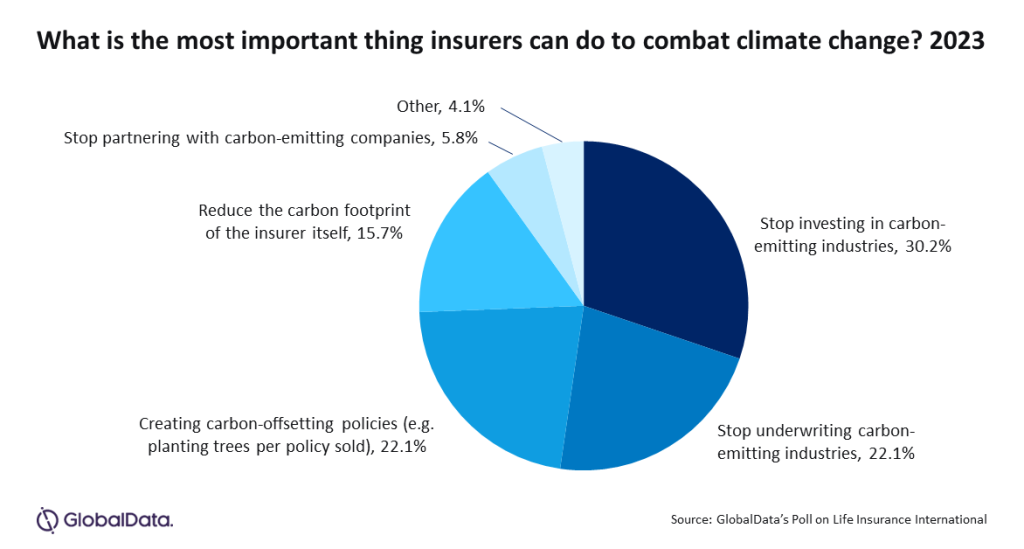In addition, this comes as the Net-Zero Insurance Alliance (NZIA) drops the requirement for members to keep setting climate change targets as leading players begin to leave the collaboration.
This is according to GlobalData, Energy Monitor's parent company, which conducted a poll on Life Insurance International, asking insurers what they can do to fight climate change.
The most popular answer was "Stop investing in carbon-emitting industries", with 30.2%, followed by "Stop underwriting carbon-emitting industries" and "Creating carbon-offsetting policies", both with 22.1%.
On the other hand, the importance of moving away from carbon-emitting industries is contrasting with the struggle of the NZIA. While many top insurers are still part of the agreement, 2023 has seen big firms, such as AXA, Lloyd’s of London and Munich Re, leave. As a result, the NZIA has stopped requiring members to publish climate change targets.

Ben Carey-Evans, senior insurance analyst at GlobalData, said: “This emphasises the importance of insurers being held accountable for setting ambitious targets and sticking to them. This will become a key sticking point for all companies going forward as regulations begin to challenge companies to actually meet targets rather than just setting them. Climate change is a particularly stark threat to the industry as it has to pay out for severe weather events around the world, and the increasing regularity of them is likely to make large areas uninsurable.”
He added: “The pressure of setting and committing to public targets as part of an organisation created a sense that insurers had to stick to them. Most insurers will continue with their own targets, but it is hard not to see this as a further watering down of efforts to combat climate change by the insurance industry.”














